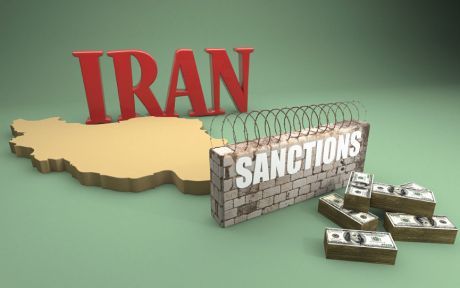News
You are here
Canada’s intervention in Iran

June 19, 2013
Minister of Foreign Affairs John Baird announced further additions to the sanctions against Iran under the Special Economic Measures Act (SEMA).
Almost three years ago, Stephen Harper announced that Canada was imposing sanctions on Iran under SEMA in addition to existing sanctions passed under the United Nations. In between the two dates, the Harper government intensified these sanctions at least four times--tightening the noose around ordinary Iranians’ neck while publicly claiming that these measures are targeted and are actually in support of Iranians and their struggle for democracy.
The new policy
The government site “Foreign Affairs and International Trade Canada” claims that the latest amendments impose a complete ban on imports from Iran and exports to Iran, subject to certain exemptions; add 82 new entities and 30 new individuals to the list of designated persons subject to a dealings prohibition; add an exemption aimed at increasing the availability of consumer communication technologies that contribute to internet freedom. This policy raises important questions for many Iranians on how this action helps to stop the nuclear program in Iran, as the original aim of the imposed sanctions.
The Harper government’s agenda continues to unfold and expand, leaving many members of the Iranian community highly alarmed and strongly disappointed. While its claim of support for Iranians’ struggles do not resonate, the increased sanctions have devastated Iranians inside and outside Iran. The first to be affected by these (falsely labeled) "targeted measures" are working class and low-income families in Iran and students and pensioners, in addition to community based small businesses in Canada.
Canada’s intervention
But the real intention of the conservative government is far from its public presentation. Canada’s decision to exempt such tools comes after the government co-hosted a two day online event at the Munk School of Global Affairs, on May 10 and 11, aimed at reaching activists inside the regime to provide a much-needed boost of morale ahead of the elections. This event was kept secret not only from the community but also from most participants, who were not provided with any information except the dates; the event was opened by John Bird and closed by Peter MacKay posing as surprise guest. The conference was broadcasted live to Iran and at some point the participants asked Iranians to boycott the upcoming presidential election and refuse to vote.
Since that date, John Bird has been actively involved with Iran’s internal affairs by issuing guidance and making promises on behalf of Harper’s government. On June 13, 2013, one day before the election, in press a release John Baird called Iran’s election a “sham election” alleging the Iranian regime had rigged the results by banning women candidates, silencing democratic voices and censoring the press. What he does not mention is that while this situation was going on for the past 33 years the Canadian government had no problem working closely and signing huge contracts with the same regime in the past decades. Just one example of their deceit is that during the mass protests of the 2009 election, the Canadian embassy in Tehran closed its doors on asylum seekers who were being chased by the regime’s agents.
At the same time, during the first week of June, the Canadian Parliament opened its doors and arms to Reza Pahlavi, the son of Iran’s last king ousted by the 1979 revolution, and welcomed him as the leader of Iran’s opposition. They also arranged an official, yet unannounced, visit of the only Iranian Community Centre, guarded by RCMP, for Mr. Pahlavi.
Western Sanctions
Western sanctions have collapsed the Iranian currency, now set at 35,000 Rials to the Dollar, nearly triple the rate of last year so the cost of education in Canada has been tripled to the families while the converted pension of Iranian seniors lost its value by the same ratio. It is clear that the Western agenda is not in support of people in Iran, but is seeking a war, by sanctions, against them.
Section:
Topics:









